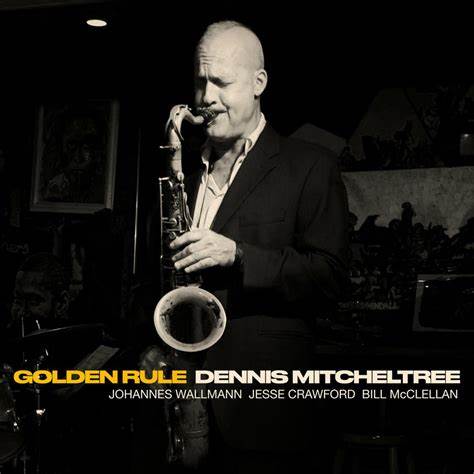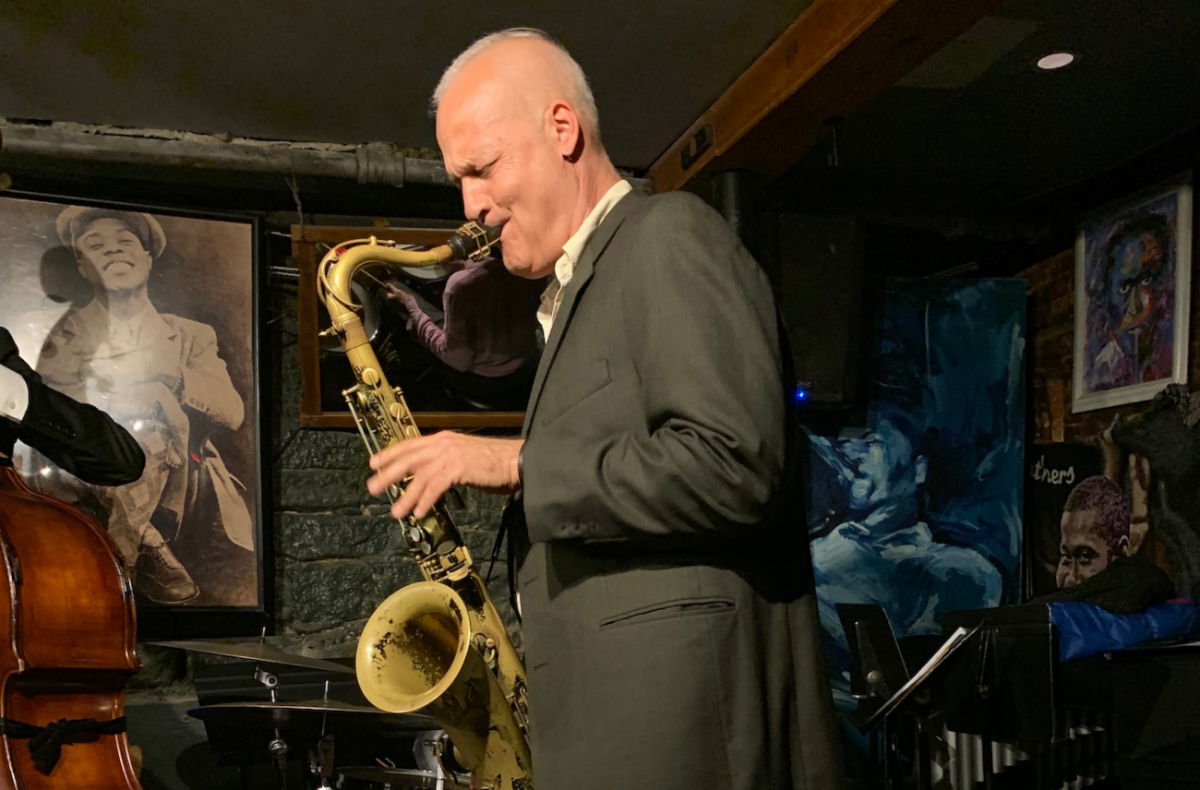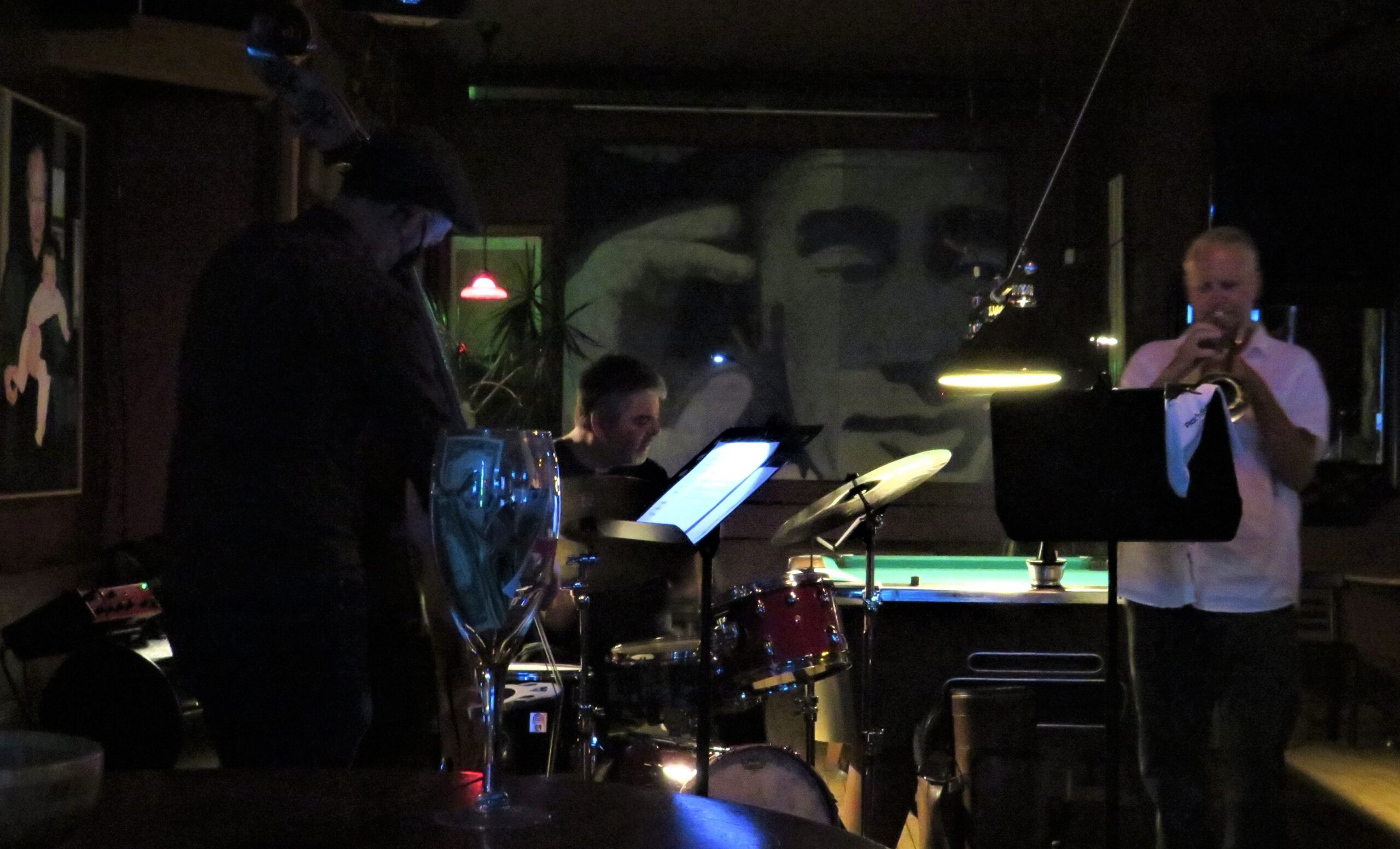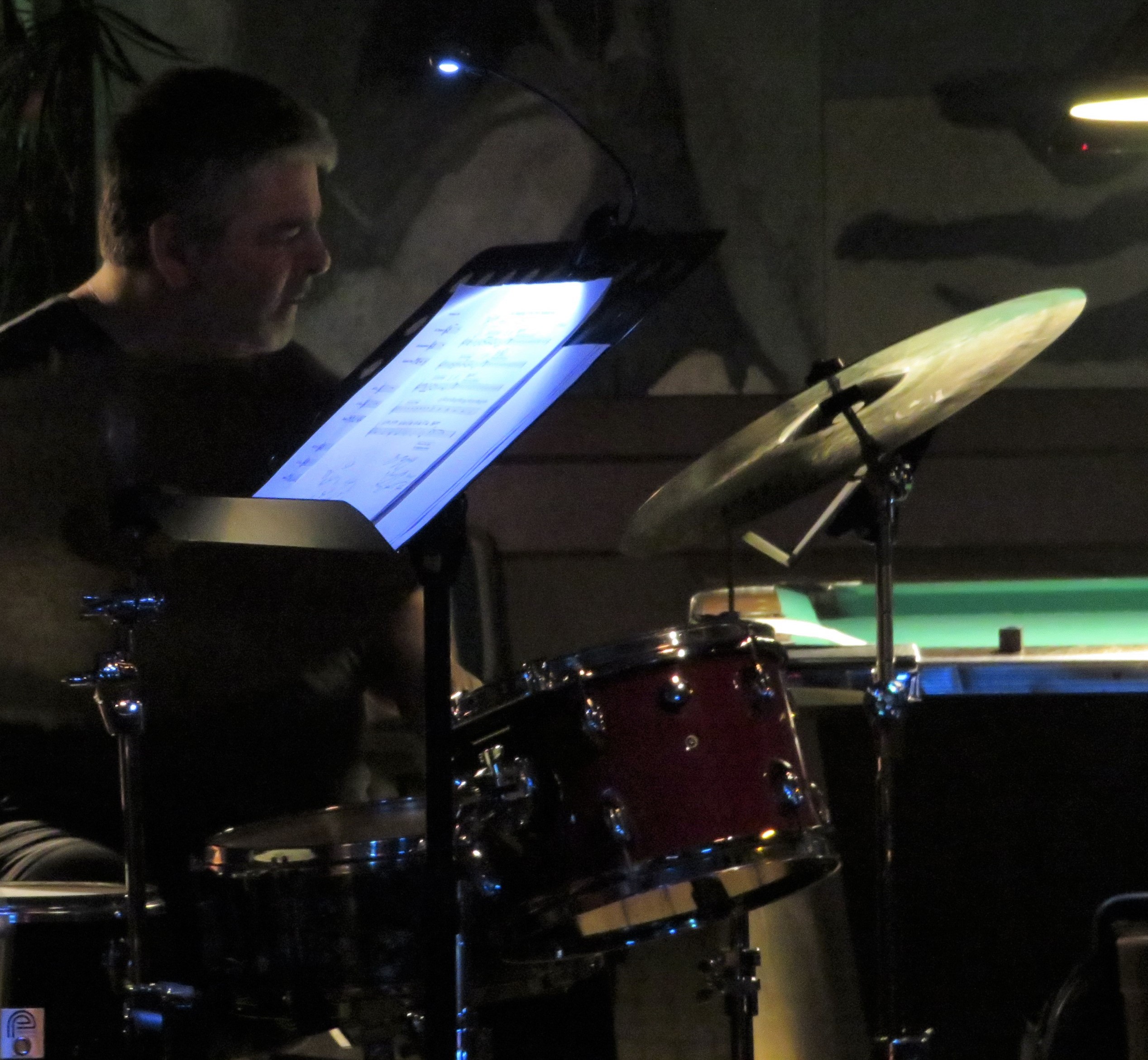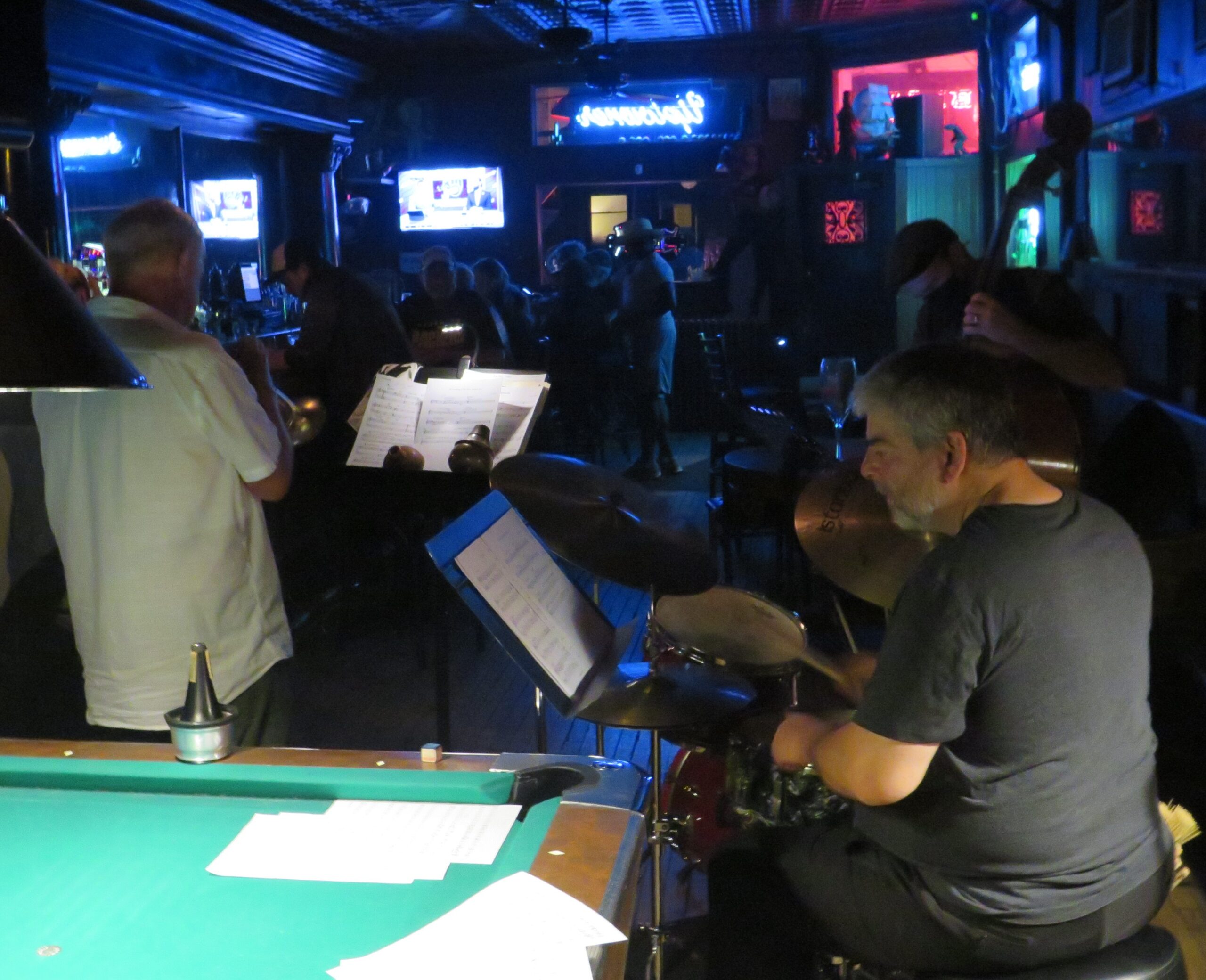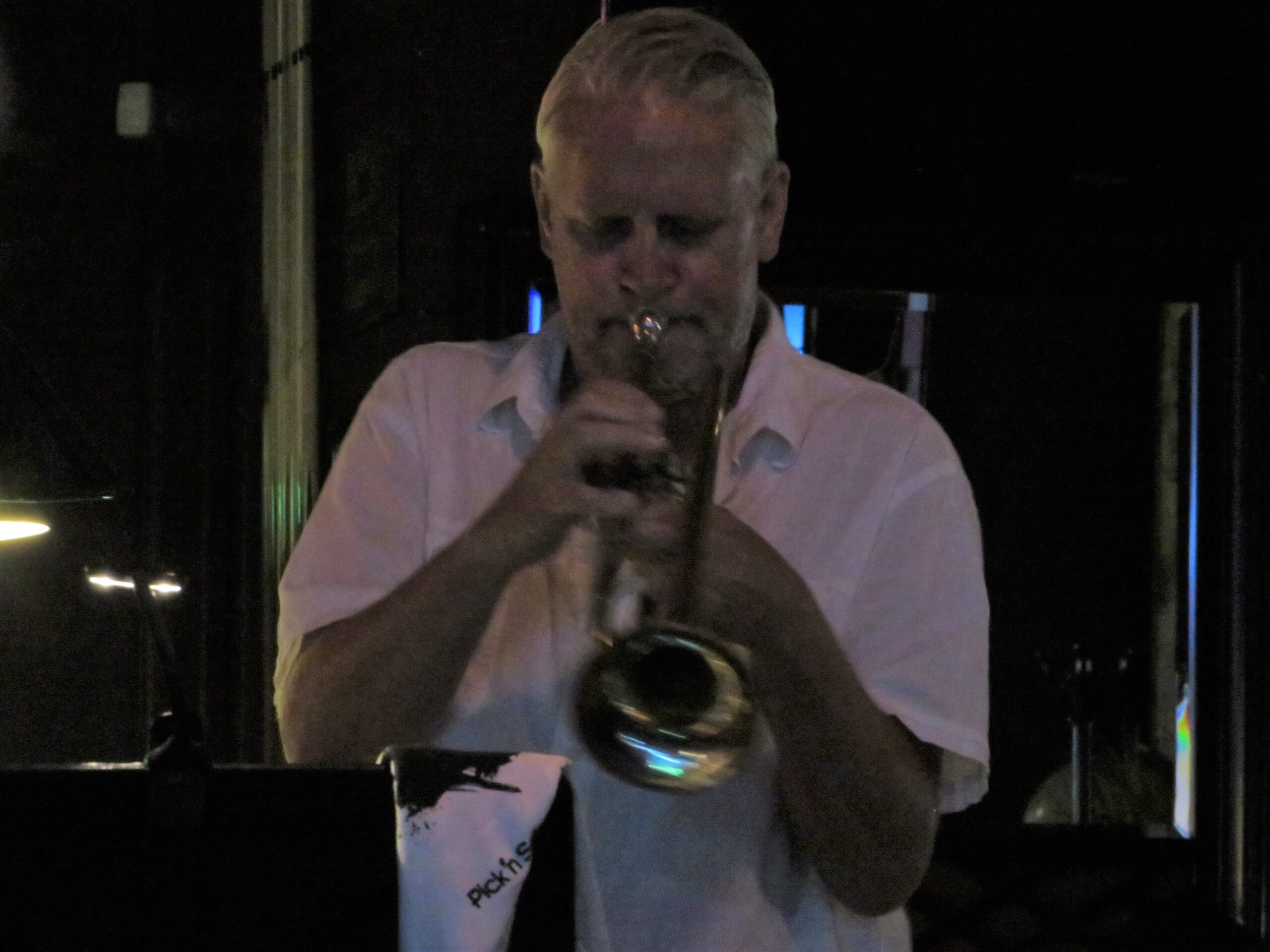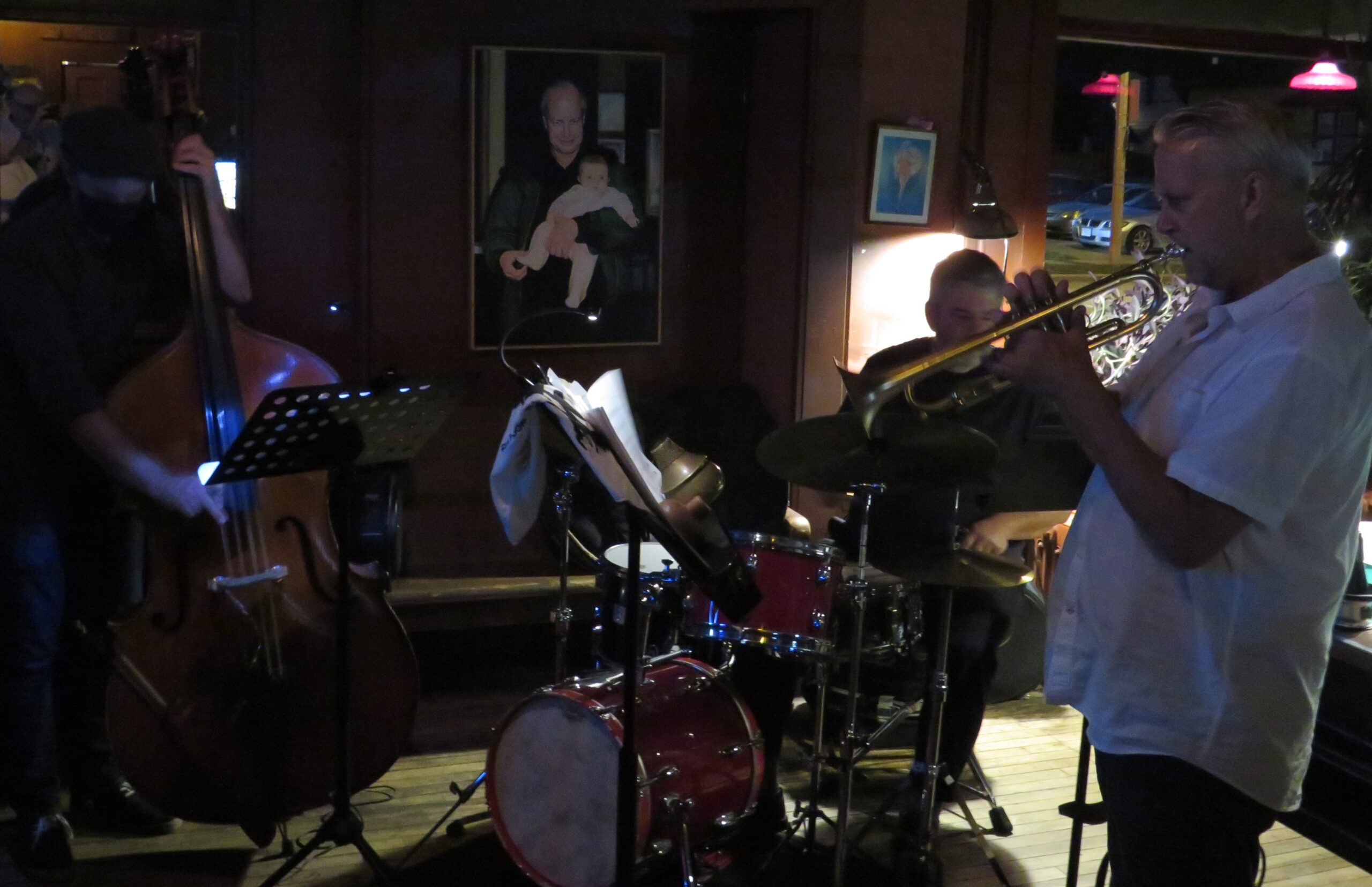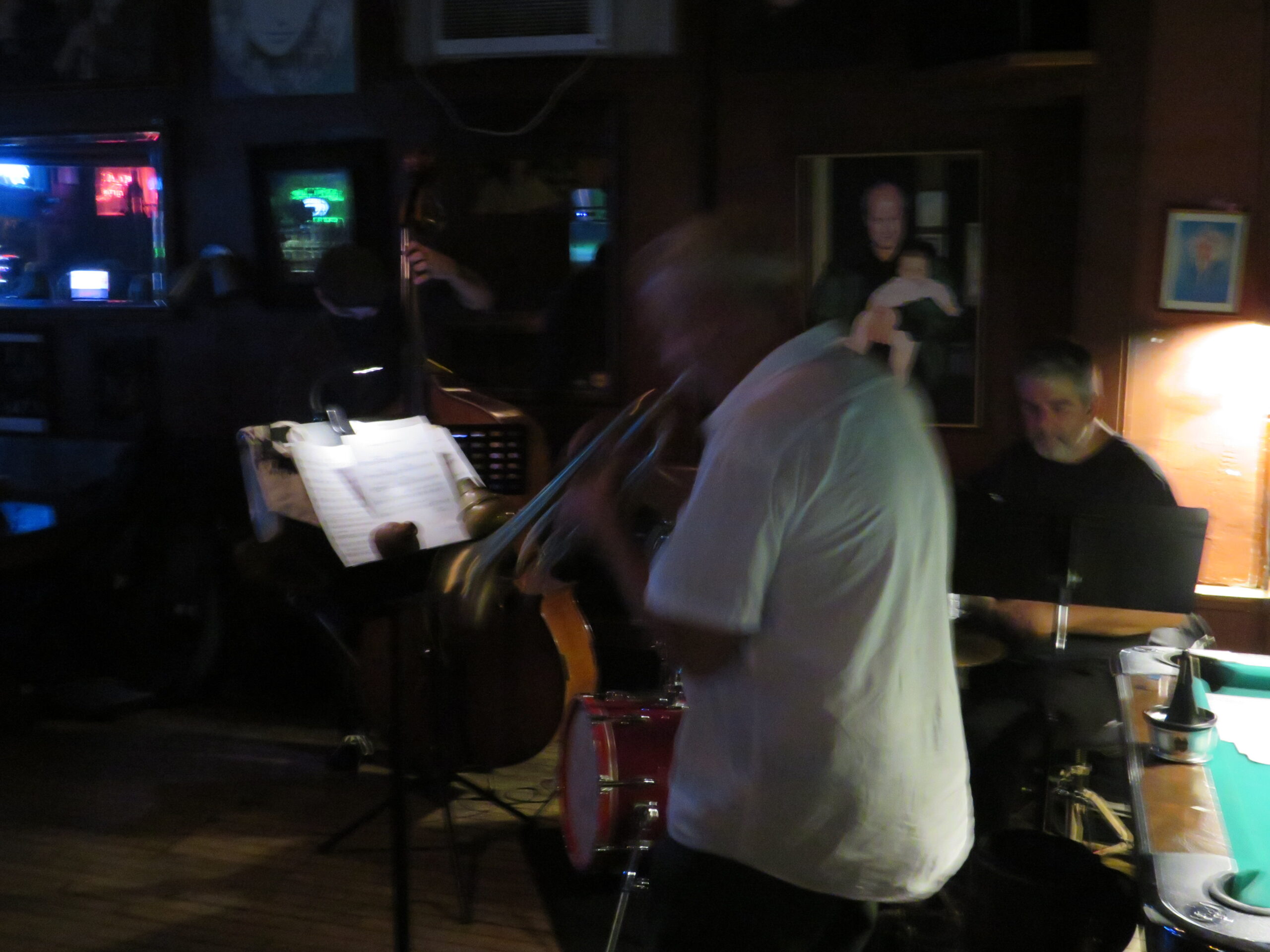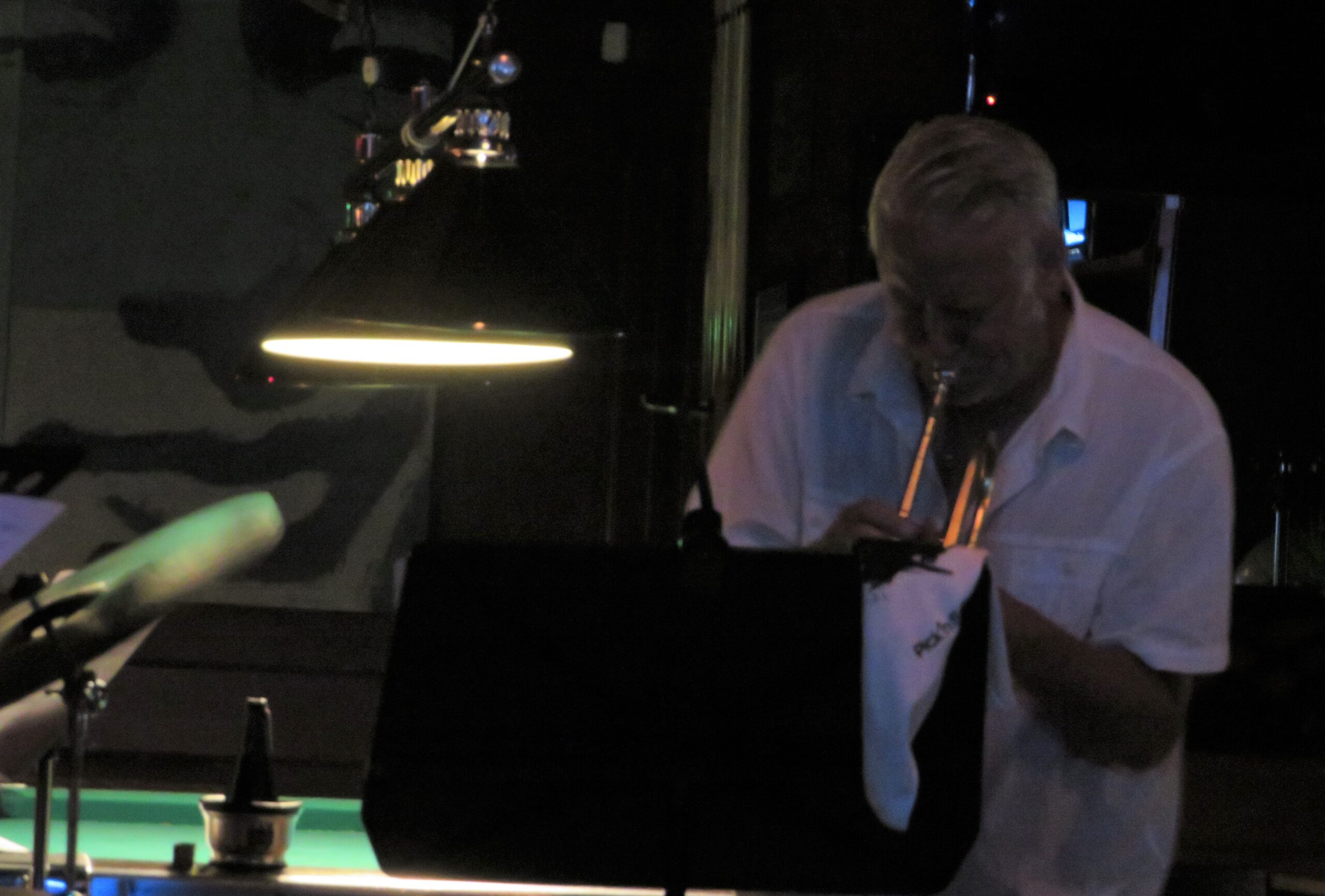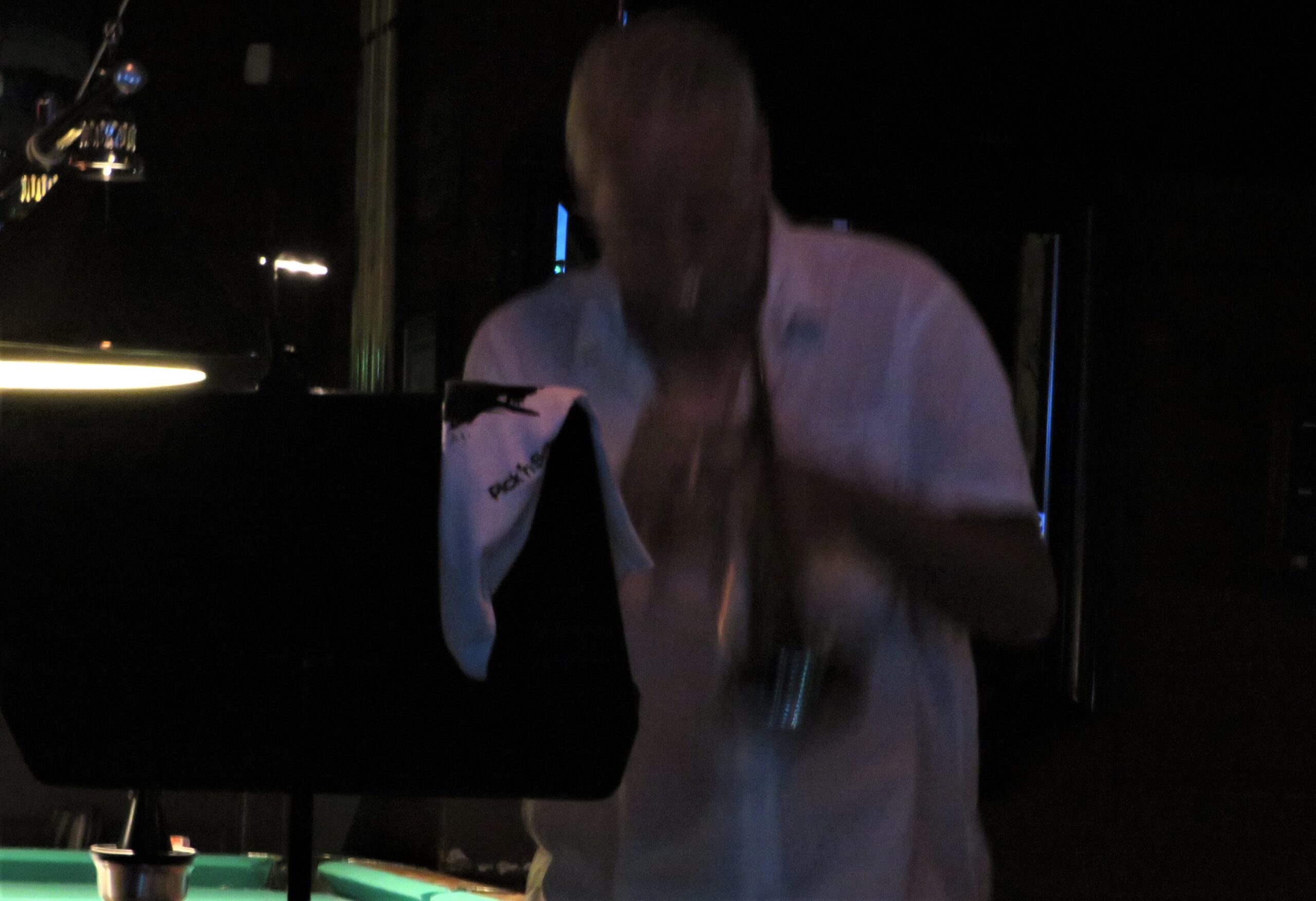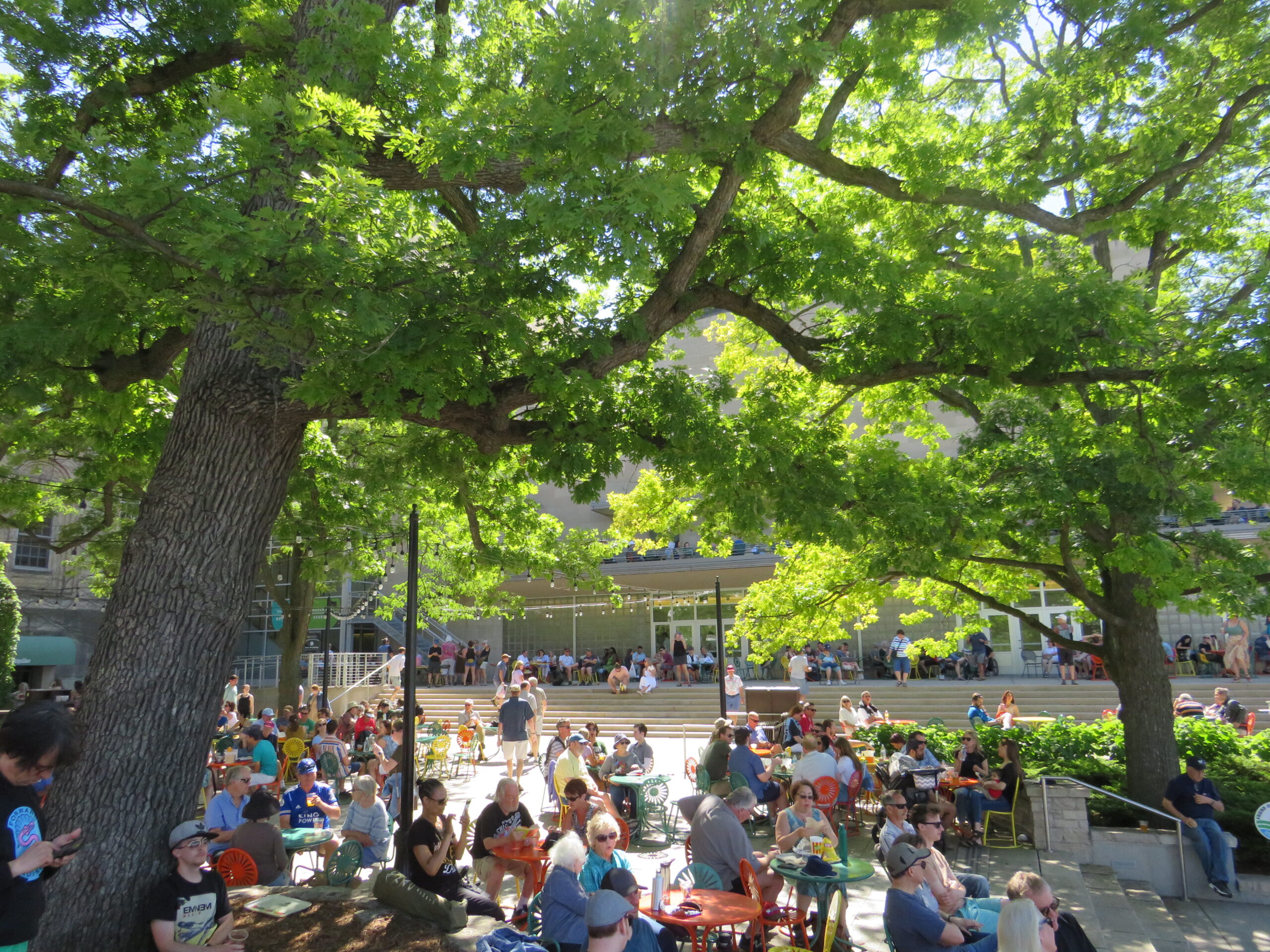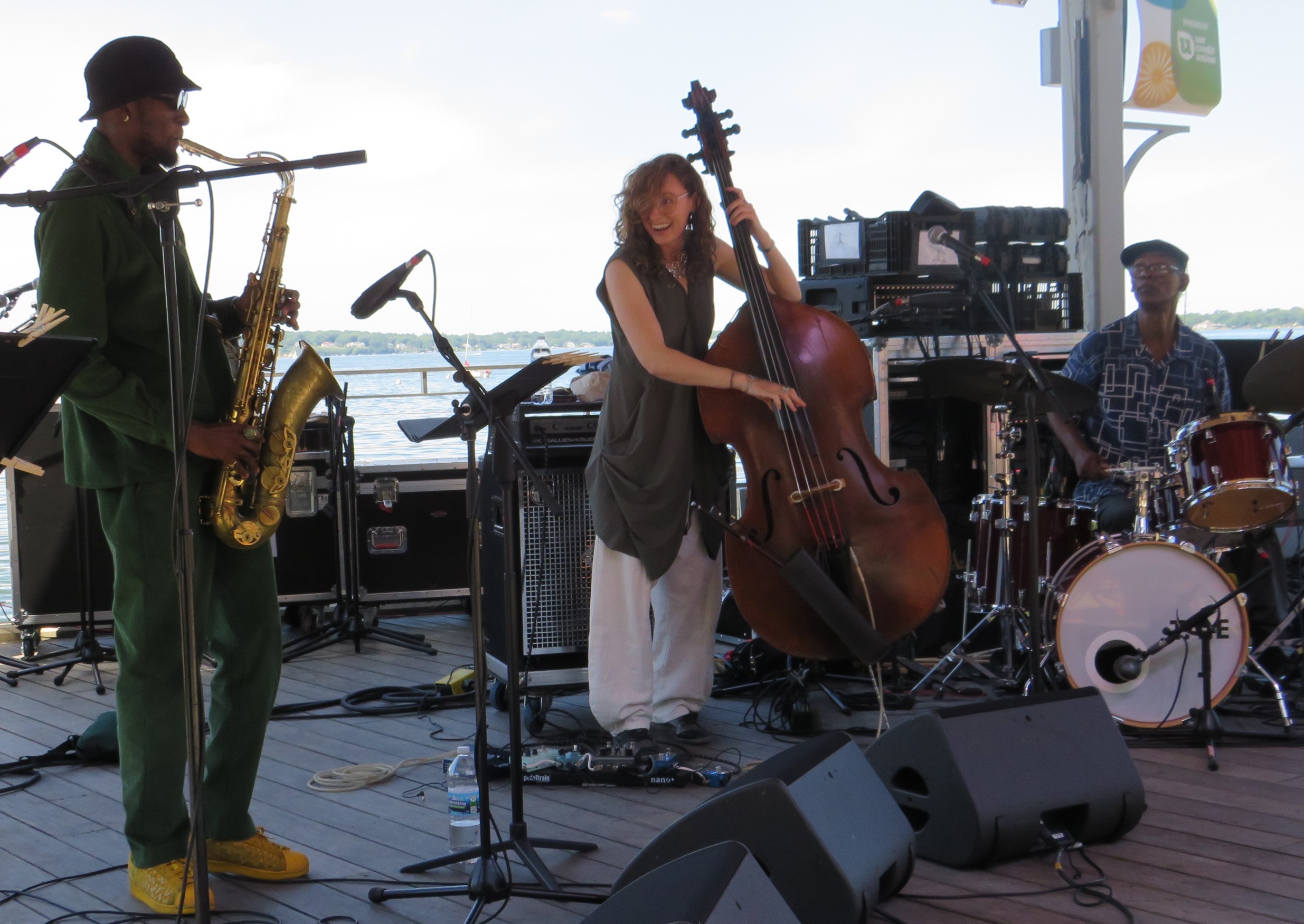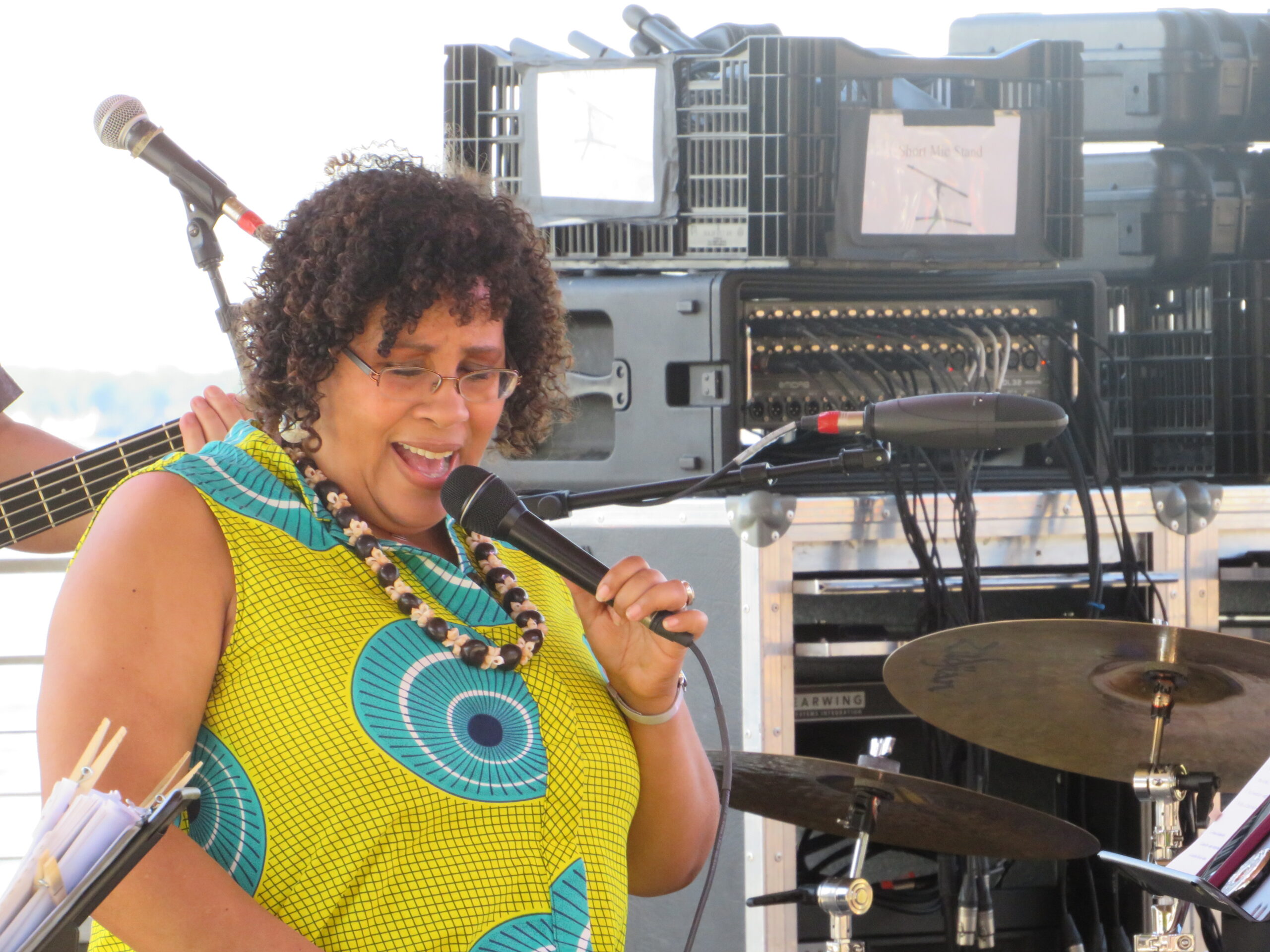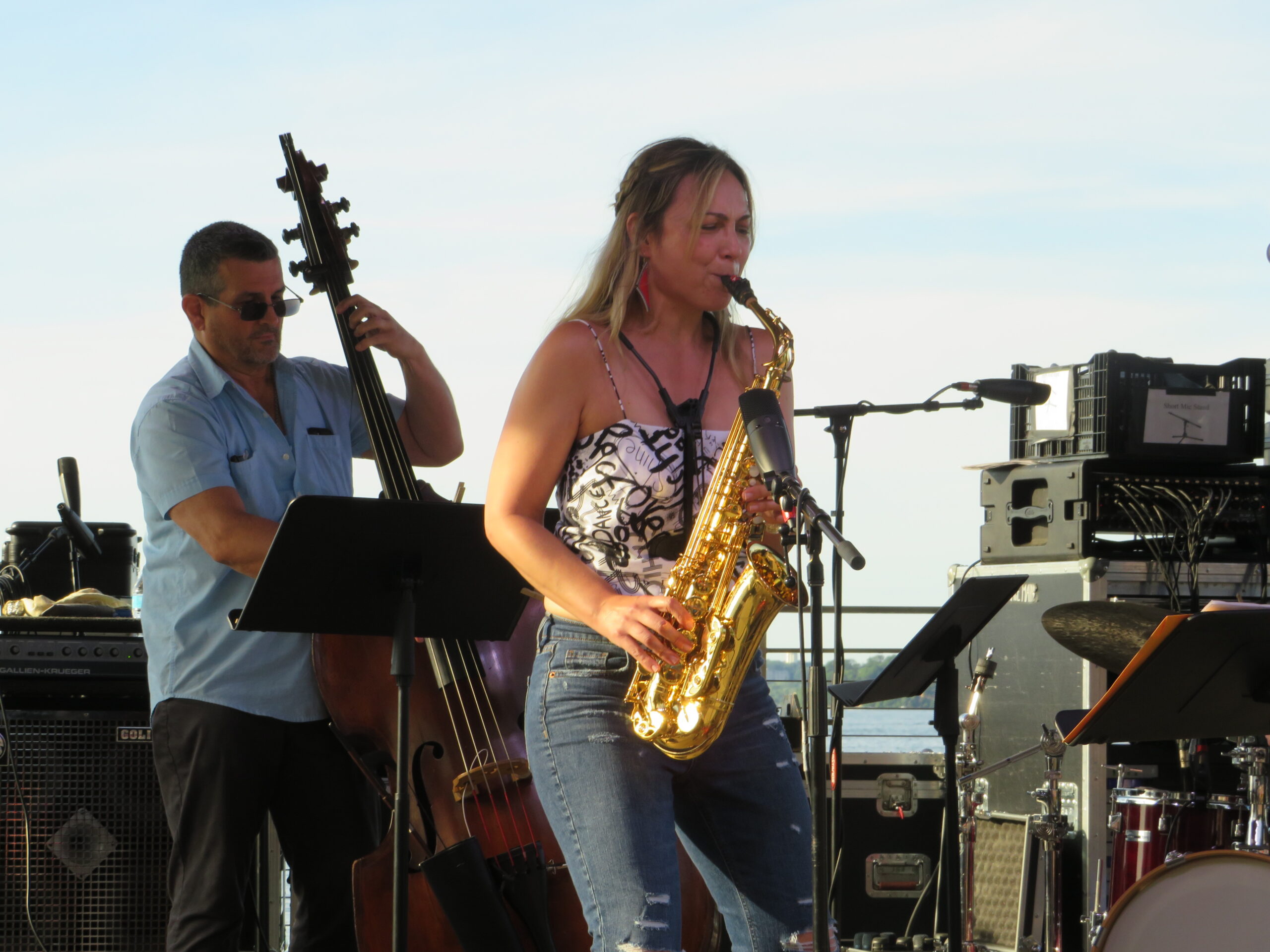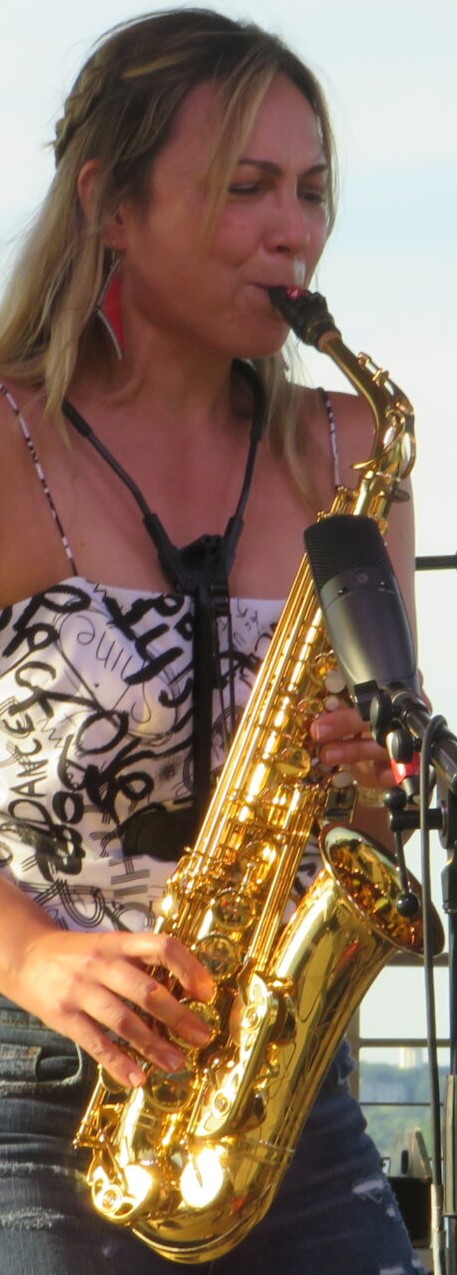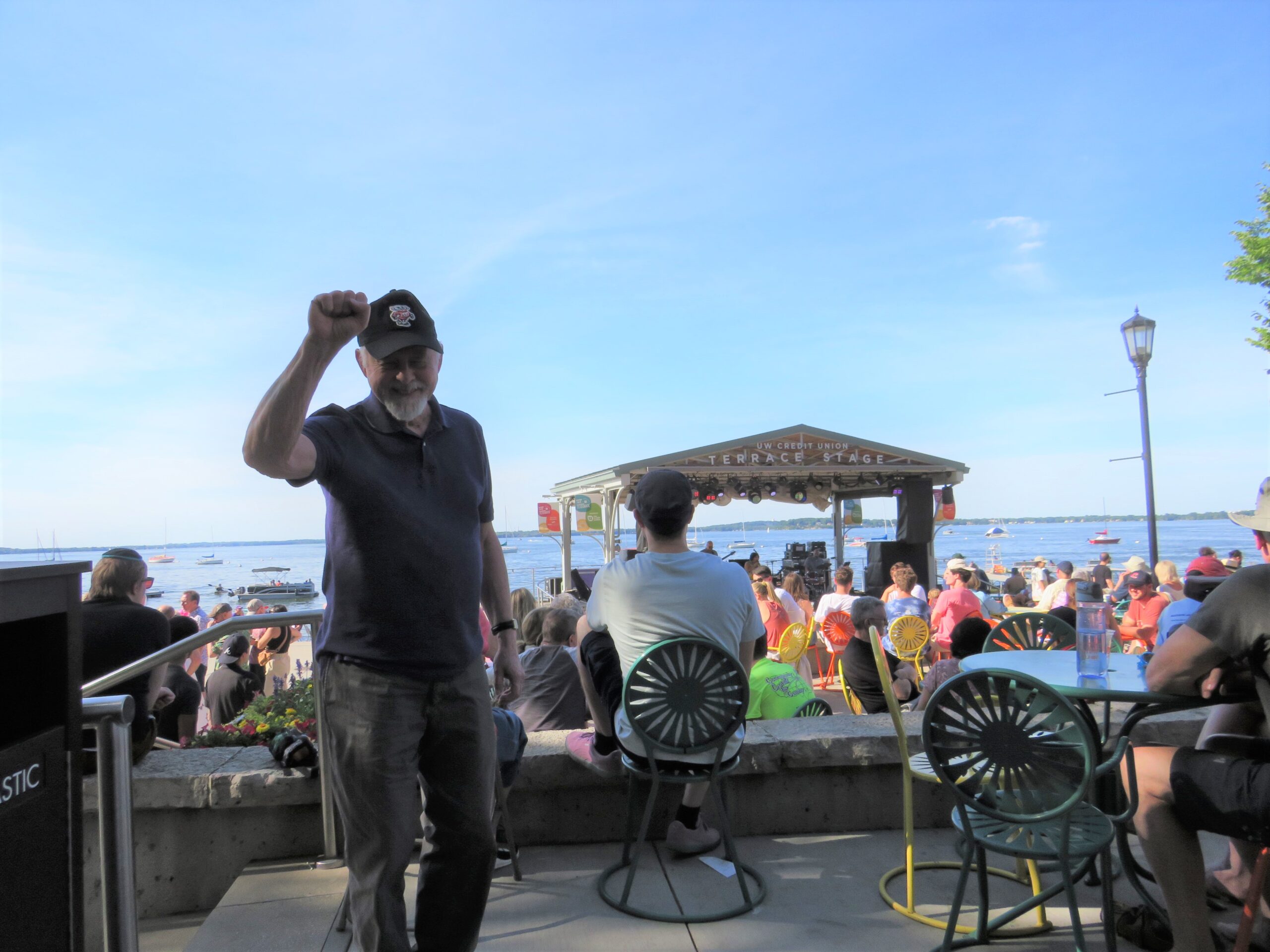
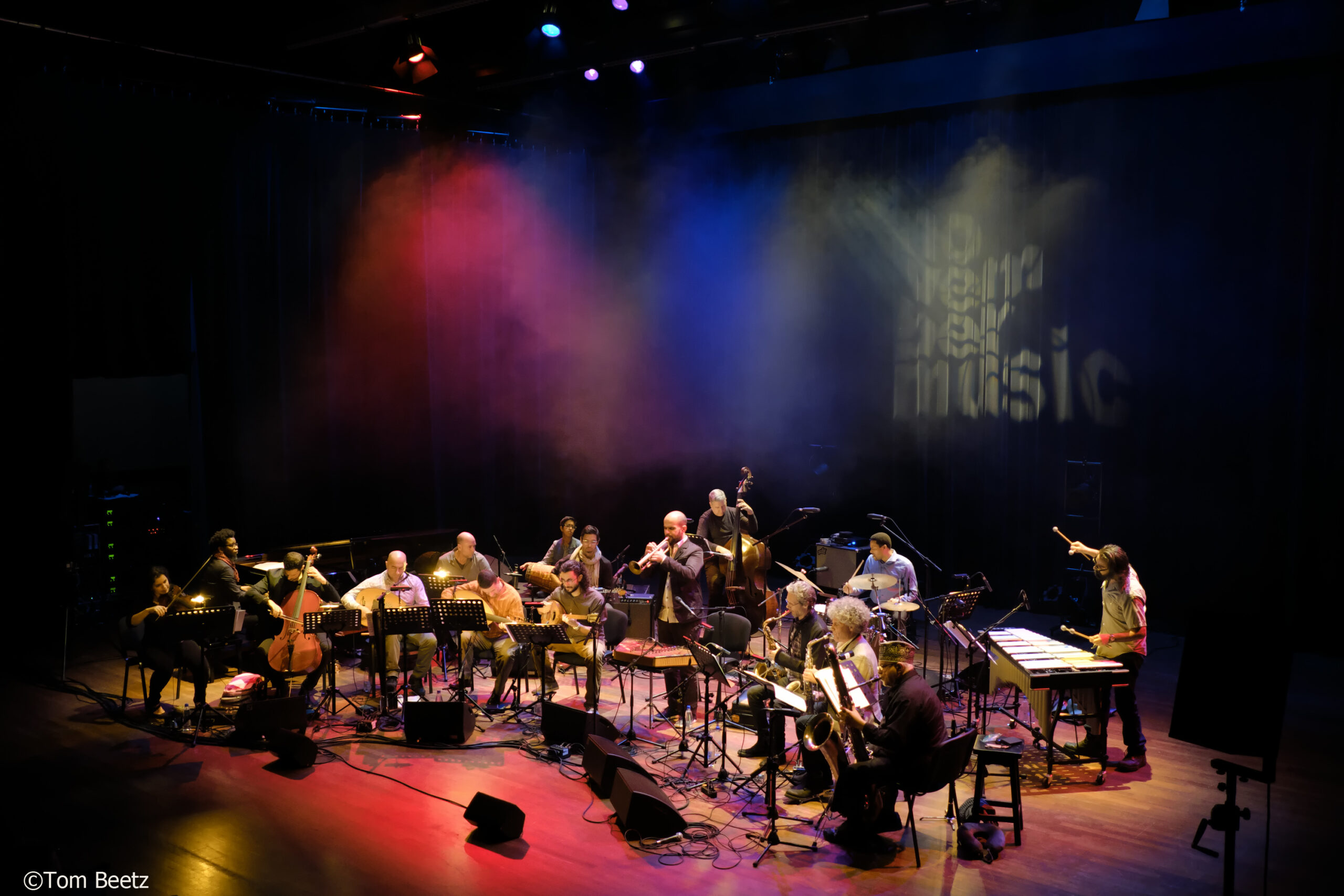
Chicago Trumpeter Amir ElSaffar and his Rivers of Sound Orchestra, pictured above, produced my choice for jazz album of the year. Photo by Tom Beetz.
Yes, but what were the best of the year, and what does all that add up to?
Here’s one man’s opinion.*
I participated in the 14th Annual International Critics Poll of El Intruso, the Spanish publication dedicated to jazz, experimental and creative music. I have included the results of the NPR critics poll here in recent years. But for a change of perspective, it’s interesting to see what critics from all around the world come up with, as the best of the year (see entire international poll link at bottom).
Special mention: The documentary film Summer of Soul, directed by The Roots drummer Questlove, captures the 1969 Harlem Cultural Festival, which reportedly drew 300,000, but got little fanfare, elsewhere. This provided the best new film soundtrack. Nina Simone, B.B. King, the 5th Dimension, the Staple Singers, and more. Here’s info on it https://pitchfork.com/news/summer-of-soul-soundtrack-release-announced/
The international poll does not ask for top 10 album lists, I will list my choices of best albums of the year for the NPR poll:
Best Jazz Albums for 2021 NPR Critics Poll
___
1. Amir ElSaffar Rivers of Sound Orchestra – The Other Side (Out Note) This was the surprise of the year. I didn’t expect ElSaffar do a big band and a very unconventional pan-cultural creature. But this is actually their second recording and a rare symbiosis emerges, beautifully conceived and executed. Yet one must set aside preconceptions of what a jazz orchestra should sound like. He’s a Chicagoan but has deeply investigated his Iranian roots and allowed the bitonal modalities to flourish like an exotic garden.
2. Charles Lloyd and the Marvels – Tone Poem (Blue Note) Tenor sax guru Lloyd and his stylistically elastic quintet, with simpatico guitar innovator Bill Frisell, lays his ineffable touch on Ornette Coleman, Thelonious Monk, Leonard Cohen and Gabor Zsabo, a concoction enfolded with a few worthy originals.
3.. Anthony Braxton – 2 Comp (Zim) 2017 (firehouse) _- One of the true geniuses and intrepid and prolific visionaries of the music called jazz or Black music (or what Braxton calls “Language Music” or “Holistic Modeling Musics”) surfaces again with a stimulating 12 hours of original music packed into a single Blue-Ray disc. Rediscover Braxton’s uncannily self-generated world of music, or take the plunge — into this transformative experience of creative possibility.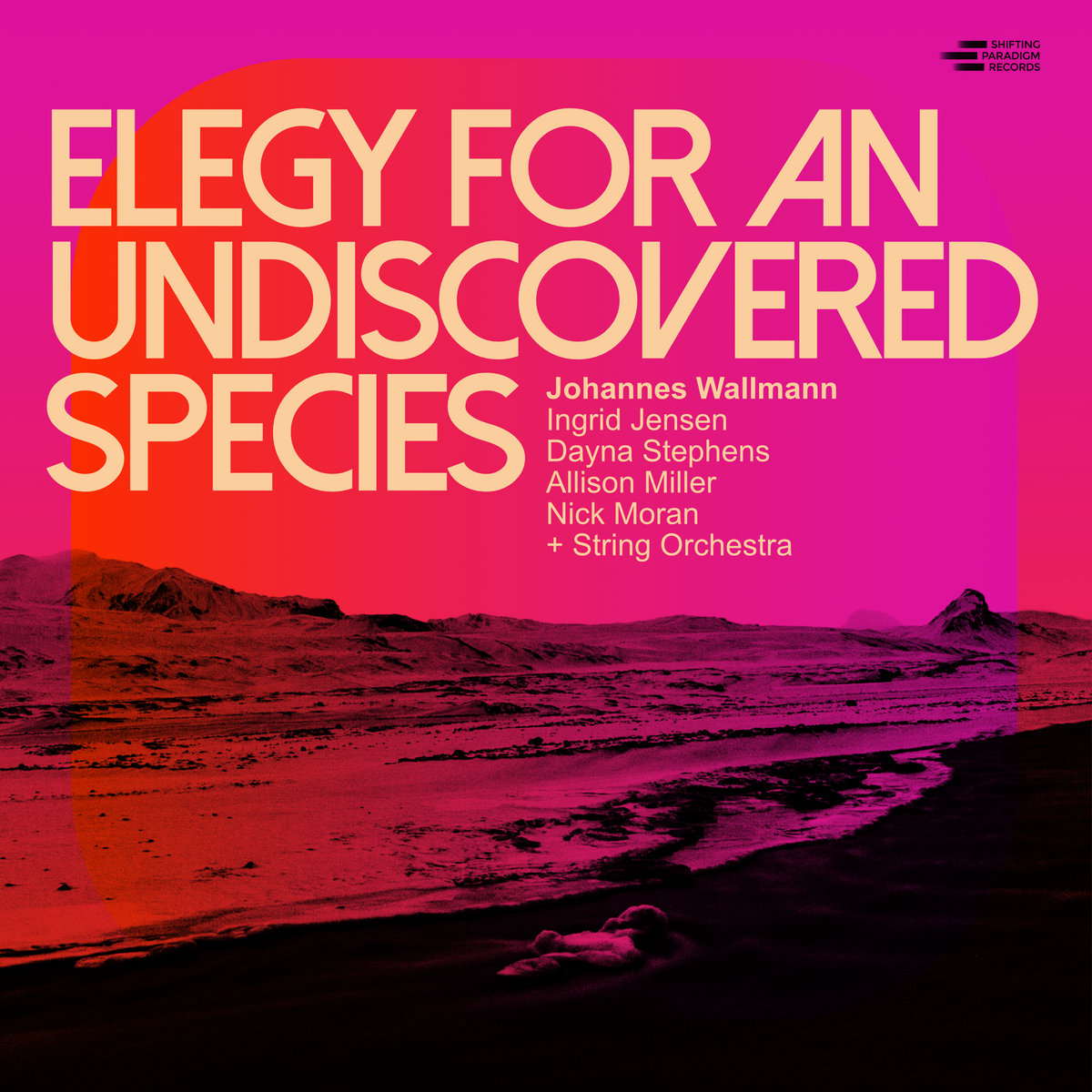
4. Johannes Wallmann – Elegy for Undiscovered Species (Shifting Paradigm) — Another masterful statement from the Madison-based pianist-composer, who shows how deftly he extends his compositional and conceptual palette to a chamber string orchestra. He spotlights two brilliant soloists for his jazz quintet with strings — Dayna Stevens, a limpidly inventive saxophonist whose plangent tone and superb phrasing almost mystically invoke Stan Getz. He also plays luminous EWI (electronic wind instrument). And trumpeter Ingrid Jensen has developed a deeply personal lyrical voice on her horn. Wallmann’s taut yet supple string writing remains always integral to the force of his expressive purpose, even in the surging romanticism of “Longing.” This elegy stirs the imagination (what species?) while deeply commenting on our global environmental malaise.
5. Lionel Loueke – Close your Eyes (Sounderscore) Wow, what a brilliant guitarist he’s become, extending the modern, harmonically weighty tradition from Wes Montgomery. He has dazzling rhythmic acumen and plays with tension like a master basketball dribbler. This was his first full-album statement “in the tradition” as the compulsive original Braxton once did, and almost all his takes are meaty and revelatory. He got a bit too clever by crunching the closer, Trane’s “Naima,” which lost the tune’s arching, iridescent lyricism.
6. Marcin Wasilewski Trio — en Attendant — (ECM) With this sad news this year of Chick Corea’s passing, and of Keith Jarrett’s apparently disabling stroke, Marcin Wasilewski joins the conversation as a darkhorse for “greatest living (and active) jazz pianist, or perhaps “best jazz piano trio.” Here’s my review of this recording:
Is this the best? Marcin Wasilewski’s cutting-edge piano trio forges ahead
7. Frank Kimbrough – Ancestors (Sunnyside) Another great recent loss among jazz pianists, Kimbrough enhanced the Maria Schneider’s Orchestra expansively harmonic sound paintings, and really stepped out in recent years with his profoundly delicious Monk’s Dreams box set, and a few marvelous recordings including this one, gracefully asserting his place as successor to his artistic ancestors.
GREAT NEW VIBES SECTION:
8. Simon Moullier Trio – Countdown ((Fresh Sound New Talent) A virtuoso vibraphonist new to me dazzled in this deftly imaginative romp through a brilliant selection of modern standards (from Monk and Mingus to Kern and Porter, etc.). His monster chops stay pretty on course to compositional expression and illumination rather than detouring into mere showiness.
9. Joel Ross – Who Are You? (Blue Note) A vibrant (pun intended) quintet session led by vibraphonist Joel Ross, and certainly the best album of largely original music by a vibist I’ve heard in a number of years. It’s modern, straight-ahead jazz which shows how elastic the modern mainstream of the music form can get.
(See also honorable mention album “Marimba Maverick” by Mike Neumeyer,)
***
10.. Noah Haidu – Slowly: Song for Keith Jarrett (Sunnyside) An eloquent and moving tribute to Jarrett, One of the most esteemed and influential pianists of his generation, and in light of the stroke which may have permanently ended Jarrett’s performing and recording career. Pianist Haidu has the chops, sensitivity and gravitas to pull this tribute off.
Honorable Mention: Miguel Zenon — Law Years: The Music of Ornette Coleman (Bandcamp), Stephanie Niles – I Pledge Allegiance to the Flag – The White Flag (Sunnyside)? Roberto Magris & Eric Hochberg – Shuffling Ivories (JMood), Jamie Breiwick The Jewel (Live at the Dead Poet) (Ropeadope), Silent Room (Enzo Carniel and Filipo Vignato) – Aria (Menace), Craig Taborn – Shadow Plays (ECM), Mike Neumeyer – Marimba Maverick (Voirimba), Marc Cary — Life Lessons (Sessionheads United) Craig Taborn – Shadow Plays (ECM)
Best Historical Albums
John Coltrane – A Love Supreme: Live in Seattle (Impulse)
Bill Evans — Behind the Dikes (Elemental)
Roy Brooks — Understanding (Reel to Real)
Best Latin Jazz Album
Miguel Zenon and Luis Perdomo – El arte Del Bolero
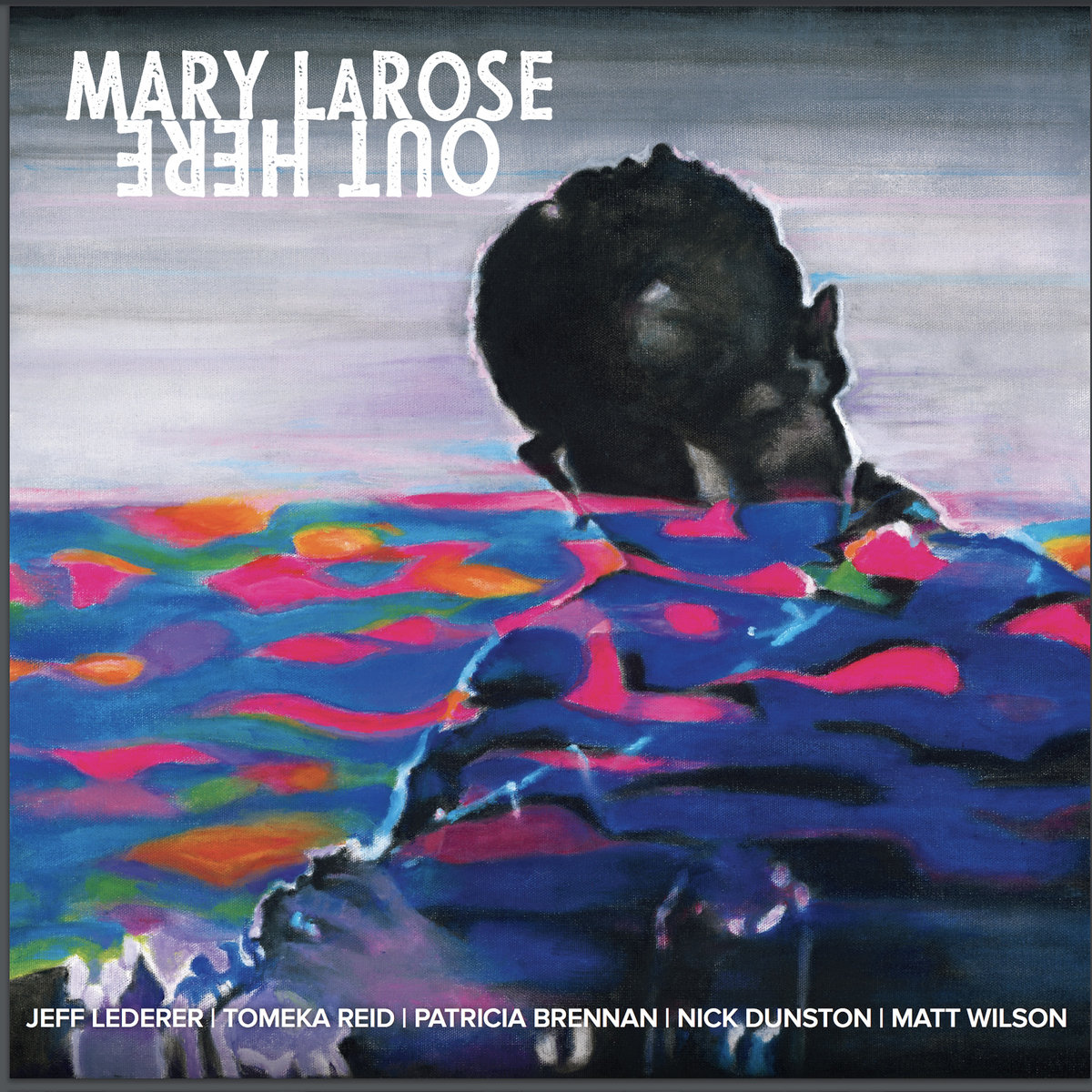
Best Jazz Vocal Album
Mary LaRose — Out Here (Little i Music)
Best Debut Album
Kazemde George – I Insist (Greenleaf)
***
Kevernacular’s ballot for El Intruso – 14th Annual International Critics Poll ballot for 2021 (see link to the poll below)
musician of the year – Miguel Zenon, Amir ElSaffar
newcomer musician – Kazemde George (saxophone)
group of the year – Charles Lloyd & The Marvels, Emile Parisien Sextet
newcomer group – Silent Room (Enzo Carniel/Filippo Vignato duo)
album of the year — Amir ElSaffar Rivers of Sound Orchestra – The Other Side (Out Note); Charles Lloyd and the Marvels — Tone Poem, Emile Parisien — Louise (ACT); Lionel Loueke — Close Your Eyes (Sounderscore)
composer – Amir ElSaffar, Anthony Braxton, Johannes Wallmann
drums – Brian Blade, Joe Chambers, Nasheet Waits
acoustic bass – Buster Williams, Christian McBride, Reuben Rogers
electric bass – Steve Swallow
guitar – Lionel Loueke, Mary Halvorsen, Miles Ozaki
piano – Chick Corea, Vijay Iyer, Marcin Wasilewski
keyboard/synthesizer/organ – Lonnie Smith
tenor saxophone – Charles Lloyd, Chris Potter, Joe Lovano
alto saxophone – Miguel Zenon, Jim Snidero, Kenny Garrett
baritone saxophone – Gary Smulyan
soprano saxophone – Emile Parisien, Isaiah Collier
trumpet/Cornet – Wadada Leo Smith, Brian Lynch, Dave Douglas
clarinet/bass clarinet – Anat Cohen, Jeff Lederer
trombone – Gianluca Petrella, Filippo Vignato
flute – Nicole Mitchell
violin/Viola
cello – Hank Roberts
vibraphone – Simon Moullier, Joel Ross, Mike Neumeyer
electronics — Marc Cary
other instruments
female vocals – Cecile McLorin Salvant, Stephanie Niles, Mary LaRose
male vocals – Kurt Elling
label of the year — Sunnyside
Here’s a link to the El Intruso International Critics Poll:
https://elintruso.com/encuesta-2021-periodistas-internacionales/?fbclid=IwAR133PHWKdq2IPbyKPq3N7hgqgI0s4Y0cW9wJ0CX6F4A1xL0jrtIDjJq1_U
___________
- Alas, I didn’t hear but one cut of Song for Billie Holiday by Wada Leo Smith, Vijay Iyer and Jack DeJohnnette, which I regret, and most likely a high top-tenner.
Kevin Lynch, The Shepherd Express, Culture Currents (Vernaculars Speak), nodepression.com
________
Like this:
Like Loading...
